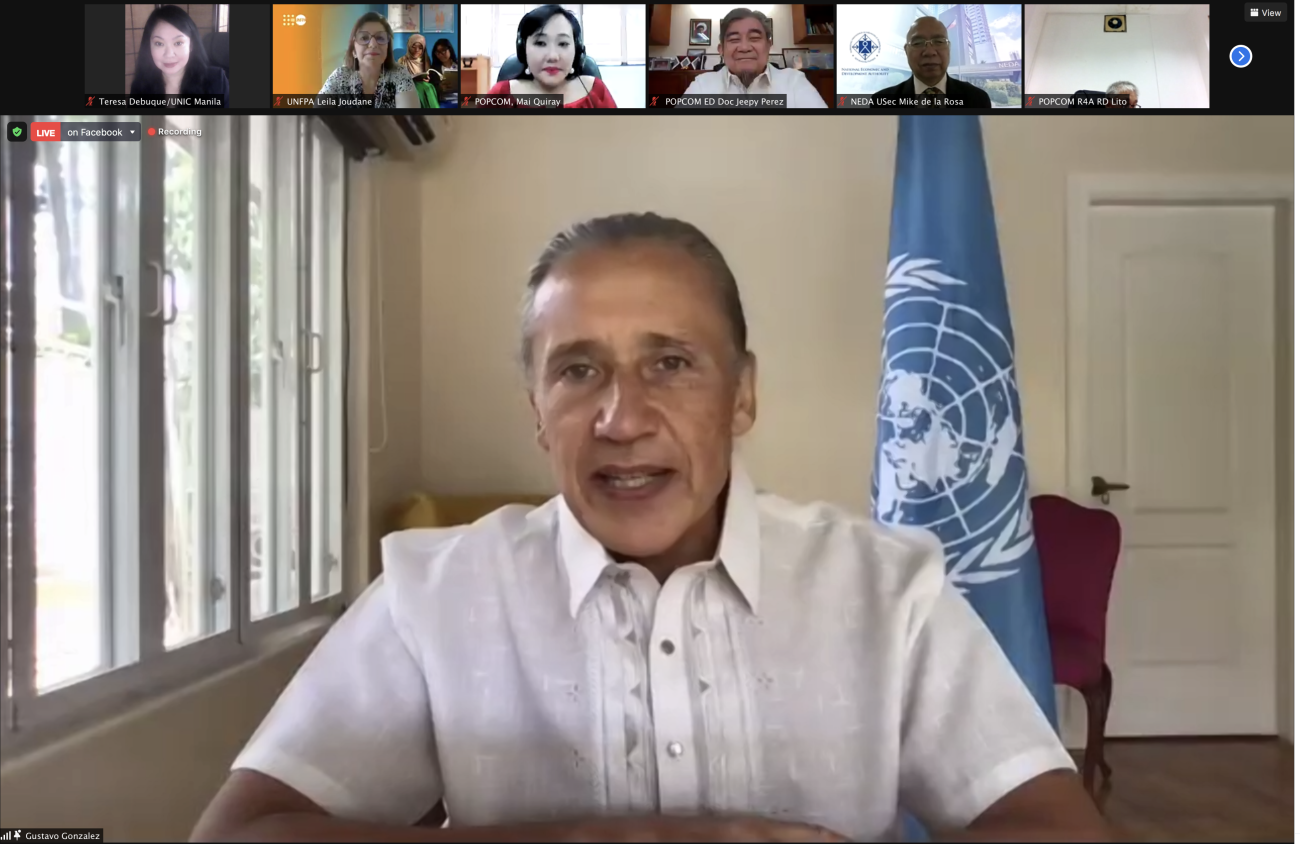MANILA, 19 May 2021--At the Philippine launch today of the State of the World Population (SWOP) Report 2021, United Nations (UN) Resident Coordinator in the Philippines Gustavo Gonzalez said that the right to bodily autonomy is a human right that must be claimed and fought for, for the benefit especially of young people.
For women and girls in particular bodily autonomy pertains to the right to say no to sex, to not be forced to marry especially in childhood, to choose when to get pregnant or how many children to have, and to have access to contraceptive options if they wish to delay or avoid pregnancy, among others.
Gonzalez told the story of two girls--Laura and Taya--who were denied the right to make decisions involving their own bodies. Laura’s partner planned to get her pregnant without her consent. In Taya’s case, her marriage and eventual pregnancy were decided for her by her family through the acceptance of a dowry.
Adolescent pregnancy is often a result of the lack of bodily autonomy. Gonzalez cited a UN Population Fund (UNFPA) report which estimates that the Philippines loses 33 billion pesos per year because of lost opportunities as a result of adolescent pregnancy. Young mothers who are not able to complete high school and take higher levels of education may reduce their chances of getting a good paying job in the future. Teenage mothers, including their babies, are also at higher risk of death during childbirth.
These stories -in fact- are much more common that we might think. This is a global problem where the power to make decisions is taken away from girls and women because of their gender and their age.
One implication of the lack of bodily autonomy is adolescent pregnancy. In a study conducted by the UNFPA, it is estimated that the Philippines loses 33 billion pesos per year because of lost opportunities as a result of adolescent pregnancy. Young mothers who are not able to complete high school and take higher levels of education may reduce their chances of getting a good paying job in the future. Teenage mothers, including their babies, are also at higher risk of death during childbirth.
The UN Philippines' Socioeconomic and Peacebuilding Framework, which sets out the principles of the UN’s support to the Philippines puts a particular emphasis on girls and women as well as on universal access to sexual and reproductive health and rights.
Gonzalez said that in order to ensure bodily autonomy, there is a need to: (1) acknowledge the capacity of young people to make decisions that involve their bodies and lives and provide the required support to enable bodily autonomy; (2) ensure that young people are able to freely access reproductive health services; and (3) strengthen the implementation of a Comprehensive Sexuality Education Program. He said that "the UN remains ready to jointly work with country’s financial planners and legislators to ensure that there is funding for this crucial program."
The SWOP is launched every year by the UN Population Fund (UNFPA). Through the SWOP, UNFPA highlights global issues and challenges on population and development that impact the lives and welfare of women and girls all over the world. [Ends]
Text of the message of Mr. Gonzalez, as prepared




